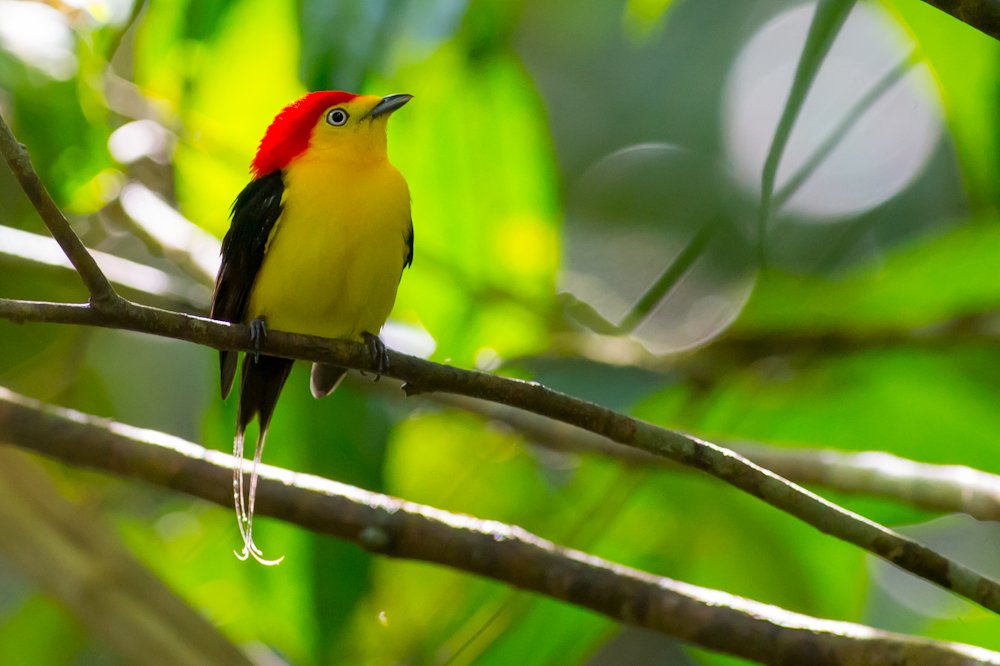Carleton University’s Roslyn Dakin, professor in the Department of Biology, has recently discovered that there is a trade-off between having too many friends and having long-lasting friendships. Her research focused on a charismatic bird species called the wire-tailed manakin, and was published in PNAS, the official journal of the National Academy of Sciences.

[ad_336]
The structure of friendships within a social network can affect the transmission of information, opinions, emotions, and even diseases. Dakin’s research focused on friendship networks in birds that live in the Amazon rainforest. Male wire-tailed manakins form coalitions with other males, and the males perform elaborate courtship displays together. These coalition partnerships can last for many years, and help a male climb the social hierarchy and obtain the resources necessary to produce offspring.
Dakin and her coauthor, Brandt Ryder at the Smithsonian Institution, tracked the birds using miniature transmitters that were attached to the birds like backpacks. This allowed the research team to monitor changes in the manakin social network through time.
They found that stable social networks had fewer, stronger partnerships.
[rand_post]
This is due to the important role of reciprocity and individual differences. The researchers built a simulation model where the individuals differed in how many friends they could maintain. In both the simulation model and the actual manakin social networks, being connected beyond an individual’s personal limit was detrimental to the maintenance of strong relationships through time.
These results may have parallels to modern human society. The researchers propose that increases in online social connectivity may decrease our ability to reciprocate important social bonds, causing our social networks to become less stable.